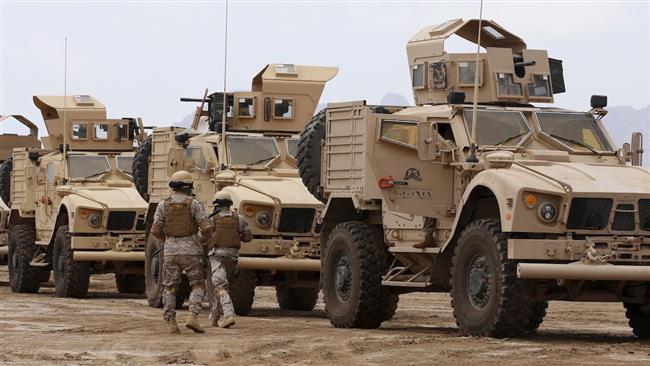
RNA - The oil-rich kingdom increased its spending to $69.2 billion in 2017, up 9.2 percent from the previous year, the Stockholm International Peace Research Institute (SIPRI) said in a new report Wednesday. This is 10 percent of the country's GDP.
This puts the Riyadh regime higher on the list than Russia ($66.3bn), France ($57.7bn), India ($63.9bn) and the UK ($47.1bn), according to the report.
As expected, the United States topped the list with $609.7 billion, followed by China at $228.2 billion.
SIPRI analysts warned that the increase in military expenditure by countries like Saudi Arabia was not a good sign.
"Despite low oil prices, armed conflict and rivalries throughout the Middle East are driving the rise in military spending in the region," said Pieter Wezeman, a senior SIPRI researcher.
In March 2015, Saudi Arabia and a coalition of its regional allies -- mainly the United Arab Emirates and Jordan -- started a war against Yemen with the declared aim of crushing the Houthi Ansarullah movement, which had taken over from the staunch Riyadh ally and fugitive former president Abd Rabbuh Mansur Hadi.
Three years on and over 600,000 dead and injured Yemeni people later, the war has yielded little to that effect.
The rulers in Riyadh have been keeping the costs of war a secret, but various estimates have been put forth by different sources and news organizations in recent years.
According to Press TV, a Harvard study has concluded that the war costs the Saudi-led coalition some $200 million a day.
Monthly, according to estimates by the Brookings Institute, Riyadh is pouring $5-6 billion into the military aggression. The regime's extravagant monarchs perhaps felt proudest last year, when, during US President Donald Trump’s debut foreign trip to Riyadh, they agreed to buy $110 billion in weapons from Washington over the next decade.
While the exact numbers remain unknown, it is no secret that it has been an expensive battle for the cash-strapped Saudis, probably one of the reasons why the kingdom sold off $1.2 billion of its $9.2 billion holdings in European equities by the end of 2015.
France, Germany and a host of other European countries have also continued to take advantage of the Yemen war, selling advanced military equipment to Saudis despite international outcry.
847/940